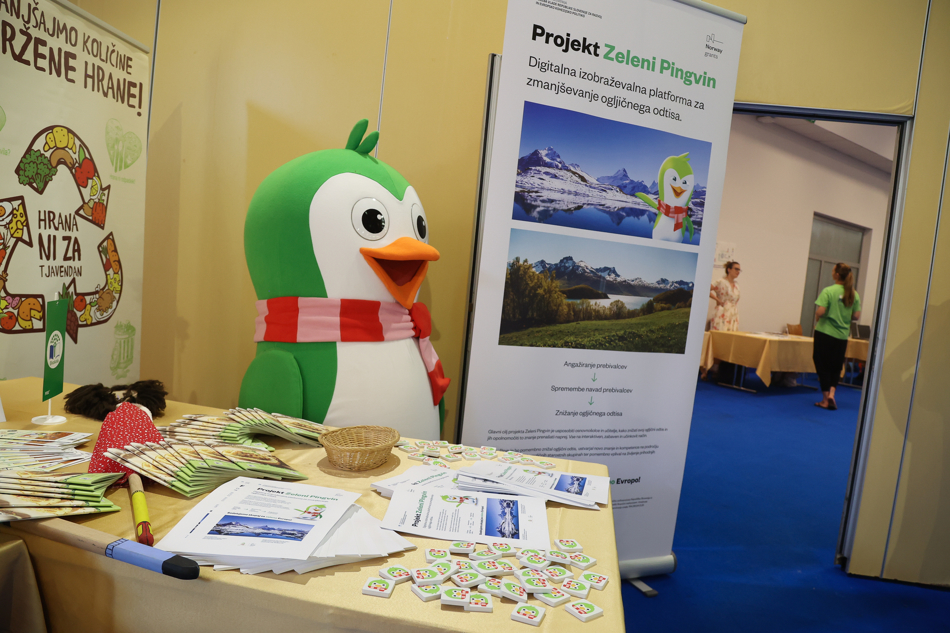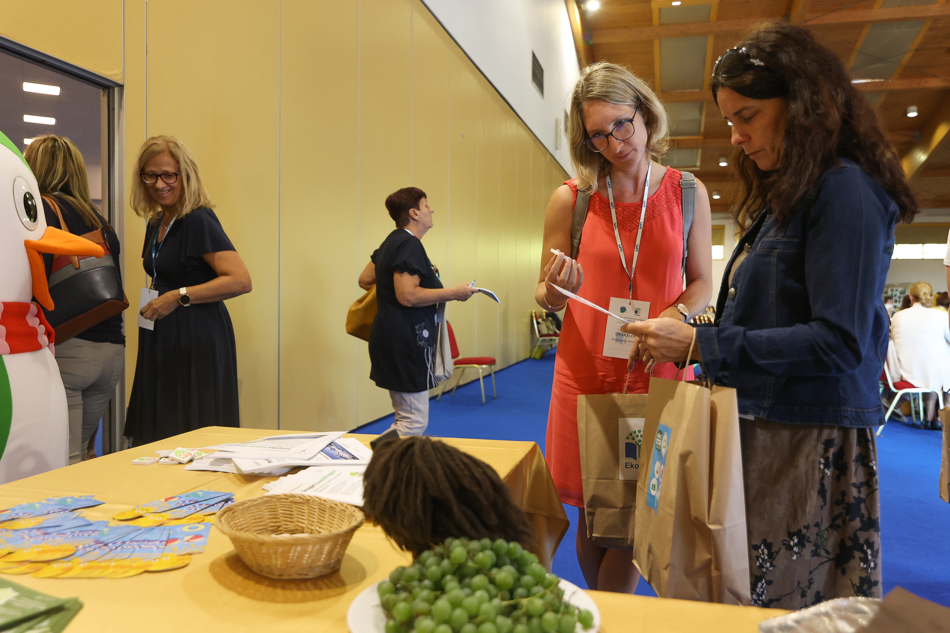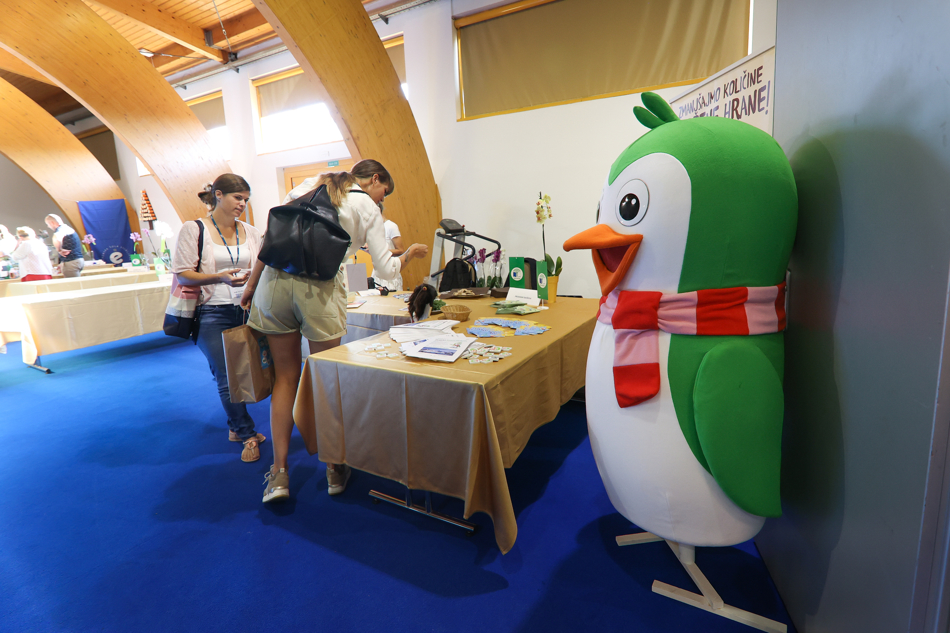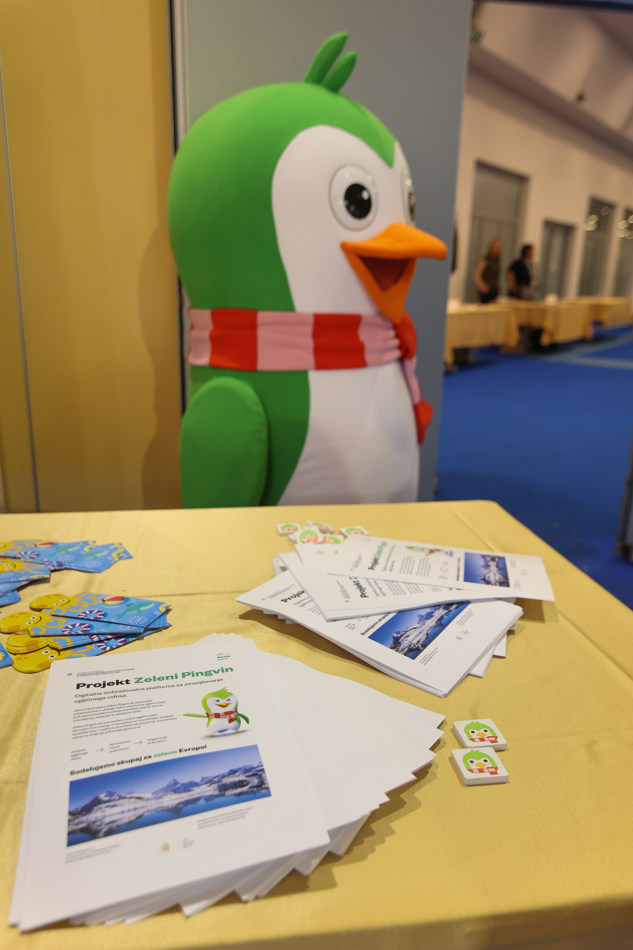Green Penguin joins teachers to present good practices
The annual Coordinators’ Conference for Primary, Secondary Schools, and Colleges took place on August 30, 2022, in Čatež, showcasing a range of projects and new initiatives under the Eco-Schools program, Including the Green Penguin project.
The conference brought together a remarkable gathering of 308 coordinators, project managers, and mentors from primary and secondary schools, training centers, work centers, and faculties.
One of the highlights of the conference was the introduction of the Green Penguin project, an innovative initiative aimed at educating young people about carbon emissions reduction and energy conservation. This project utilizes smart digital technologies to monitor energy, heating, and waste consumption data. Through an interactive platform, children can learn about the causes of carbon footprints and discover practical steps they can take to improve the environment.
Throughout the conference, coordinators and mentors showcased a wide array of good practices and pedagogical workshops from various educational institutions. Attendees had the opportunity to explore stands and attend on-stage presentations, where these dedicated educators shared their experiences and successful approaches to environmental sustainability. The conference also featured insightful presentations by guest speakers who focused on current topics related to energy equipment for educators, energy system simulations, and other relevant subjects. One of the prominent topics was the Green Penguin project, which captured the audience’s attention and sparked meaningful discussions on the importance of sustainable education and the role of technology in shaping the future.
As the Green Penguin project gains momentum, it is expected to make a significant contribution to sustainable education and inspire a new generation of environmentally conscious individuals. With its focus on reducing carbon emissions and energy consumption, the project aims to teach lifelong values of environmental responsibility in young minds.
The Coordinators’ Conference proved to be a vital platform for showcasing the innovative Green Penguin project and highlighting the efforts of passionate educators in promoting sustainable education. It emphasized the importance of collective action and encouraged participants to continue their inspiring work, ensuring that future generations are equipped with the knowledge and skills necessary to protect and preserve our planet. Together, through initiatives like the Green Penguin project and the dedication of educators, we can nurture a more sustainable and environmentally aware society for generations to come.
Today, the Green Penguin project is being implemented by a consortium of organizations, namely: Iskraemeco, d.d., the City of Kranj, the City of Ljubljana, the Association DOVES-FEE Slovenia and FEE Norway who are implementing the international Eco-Schools programme. The project is co-financed by the Norwegian Financial Mechanism and Ministry of Cohesion and Regional Development. The Norwegian Financial Mechanism stands for Norway’s contribution to a green, competitive and inclusive Europe.

Vir: Ekošola







